Choisissez la langue de votre document :
- bg - български
- es - español
- cs - čeština
- da - dansk
- de - Deutsch
- et - eesti keel
- el - ελληνικά
- en - English
- fr - français
- ga - Gaeilge
- hr - hrvatski
- it - italiano
- lv - latviešu valoda
- lt - lietuvių kalba
- hu - magyar
- mt - Malti
- nl - Nederlands
- pl - polski
- pt - português
- ro - română
- sk - slovenčina
- sl - slovenščina
- fi - suomi
- sv - svenska
|
| Postup : 2020/2040(INI) |
| Postup dokumentu : A9-0154/2021 | ||||||
Predkladané texty : A9-0154/2021 | Rozpravy : PV 07/06/2021 - 20CRE 07/06/2021 - 20 | Hlasovanie : PV 08/06/2021 - 19PV 09/06/2021 - 3 | Prijaté texty : P9_TA(2021)0276 | |||
| Doslovný zápis z rozpráv |
|
|
| Pondelok, 7. júna 2021 - Štrasburg |
|
| Posledná úprava: 11. októbra 2021 | Právne upozornenie - Politika ochrany súkromia |




